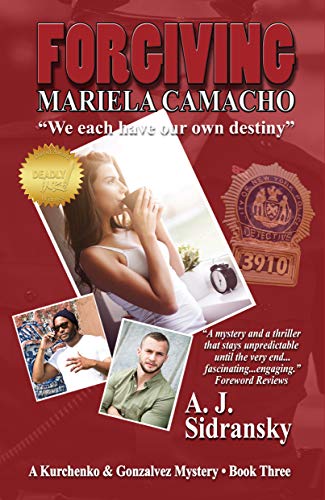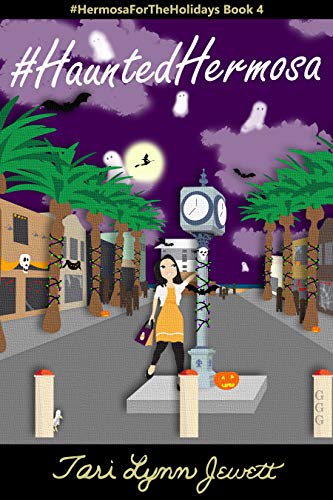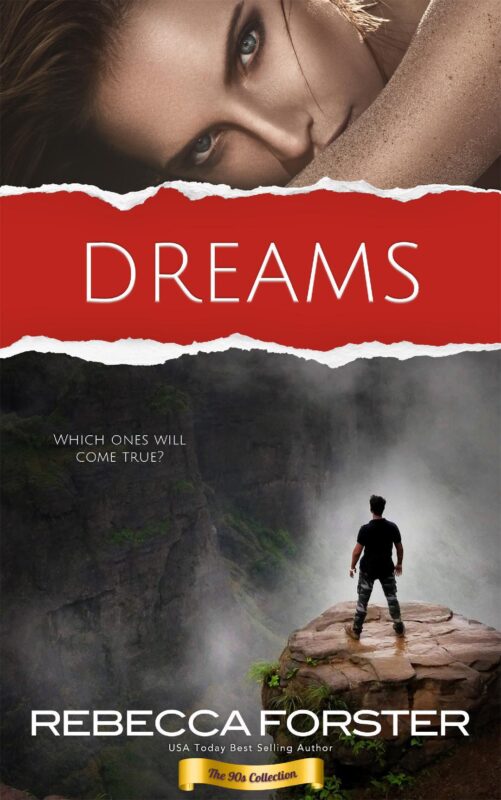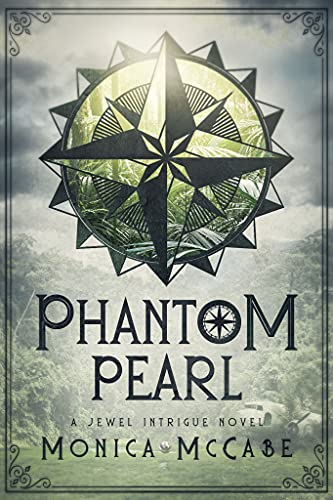The Only Number That Counts
July 15, 2021 by Rebecca Forster in category The Write Life by Rebecca Forster tagged as #bookreview, #writing voice, Book Reviews. Rebecca Forster I just finished reading an older, but wildly popular, novel. This was an Oprah pick. It took the reading world by storm years ago. Sadly, the more I write the less I read for pleasure, so I am late to the game. When my husband surprised me with a birthday trip to Los Cabos this was the book I brought with me.
I just finished reading an older, but wildly popular, novel. This was an Oprah pick. It took the reading world by storm years ago. Sadly, the more I write the less I read for pleasure, so I am late to the game. When my husband surprised me with a birthday trip to Los Cabos this was the book I brought with me.
I was entranced — until I wasn’t. The first half was stunning, brilliant, a classic-in-the-making; the second half was annoying, disheartening, and predictable. The reasons for my assessment are many, but this is not a critique. This is the admission of a personal awakening. While I am a voracious – and I hope – adventurous reader, I am also realize I am a timid reviewer. For days I questioned my reaction to this book simply because my opinion was in the minority. I convinced myself that writing a review would be a waste of time. That I must be wrong about the book. In truth, I simply didn’t want to be the odd man out. What a coward!
I had written many thoughtful, honest reviews, and the only thing keeping me from posting this one was numbers and it’s very best seller status. I would be swimming upstream, going against the grain, raising my hand to reveal myself as the annoying, contrary kid in class. How could I be so arrogant as to not love this book fully? But then I looked at reviews on some of my own books and saw readers who had posted thoughtful, honest reviews both glorious and gloomy. As an author, I took all of them seriously. Sometimes the critical reviews hurt, but only if they didn’t offer reasons for the reader’s dissatisfaction. (My favorite was a one star that simply said, “I haven’t read the book yet.”)
After reading my reviews, reading the reviews on this beloved book, and thinking about my hesitancy a while longer, I came to a conclusion. While the beauty of art is in the eye of the beholder, a book’s beauty is in the brain and the heart of the reader. There are no brightly colored paints or chalks so show us the artist’s intent. There are only words and our interpretation of them. One author’s work may touch us, while another keeps us at bay. One author’s style may enthrall us, while another’s is tedious. It is our job as readers to clearly and fully explain why we react as we do to a book when we write a review. Specifics matter. Qualifying that it is our personal opinion puts the review in context. It is wonderful when we all agree, but it is interesting when we do not. A contrary review can make us stop and think as much as a glowing review can excite us. Our eyes, hearts, and minds are as individual as the author’s who write the books we read. It isn’t about the number or reviews or the plethora of stars. It is about a one-on-one experience: the reader and the author. Whether we share our opinion in writing or not, we have reviewed a book a minute we read the last word and that’s the only number that counts.
4 0 Read moreWhat Eccentric Writing Habits Have I Never Mentioned? By Connie Vines
October 13, 2016 by A Slice of Orange in category Archives tagged as #connie vines, #Rodeo Romance #the writing process, #writing, #writing voice, #ZombiesMost authors, of course, have personal eccentric writing practices. Fueled, no doubt by his or her personal muse. Agatha Christie munched on apples in the bathtub while pondering murder plots, Flannery O’Connor crunched vanilla wafers, and Vladimir Nabokov fueled his “prefatory glow†with molasses.
Then there was the color-coding of the muses: Alexandre Dumas, for decades, he penned all of his fiction on a particular shade of blue paper, his poetry on yellow, and his articles on pink; on one occasion, while traveling in Europe, he ran out of his precious blue paper and was forced to write on a cream-colored pad, which he was convinced made his fiction suffer. Charles Dickens was partial to blue ink, but not for superstitious reasons — because it dried faster than other colors, it allowed him to pen his fiction and letters without the drudgery of blotting. Virginia Woolf used different-colored inks in her pens — greens, blues, and purples. Purple was her favorite, reserved for letters (including her love letters to Vita Sackville-West, diary entries, and manuscript drafts. Lewis Carroll also preferred purple ink, but for much more pragmatic reasons: During his years teaching mathematics at Oxford, teachers were expected to use purple ink to correct students’ work — a habit that carried over to Carroll’s fiction.
So how do my little eccentric (or never before mentioned) writing practices measure up? Is my personal muse quirky, dull, or out of control?
Since my quirks are normal for me, I had to think about this for a bit.
• I always drink coffee that is part of my current ‘setting’. When my setting is New Orleans I mail order my coffee from my favorite spot.
Café du Monde. I have my cup and saucer, and a portable mug when I writing outdoors. I have a blue coffee pot and matching tin cup when I writing westerns (yes, the coffee is VERY strong and black). And of course, a Starbucks cup or a Disneyland mug when my novels take place in So.Cal.
• My music and my menu planning also is linked to my settings. All within the range of normal. Though I have more than my fair share of coffee mugs and cups.
• I listen to diction videos on YouTube so that I am not relying on my memory for the sound of a Cajun accent, Texan’s drawl, etc.
• I visit areas on Google Earth and Zillow. Even if I have lived or vacationed there, I may have forgotten an interesting ‘something’ I can insert into dialogue, or find a way to describe a scene.
• I talk to myself. Or not simple little sentences. I’m talking about a two- way conversation: “Do you think that might work?†“No. No one is that stupid!†“How about. . .†This is the time my husband walks by to find out who’s on the phone, or if I’m asking him a question. The dog even pokes her head in to see what’s going on. I’m thinking this is a bit outside of the ‘normal’ range.
• When I write I have to make certain my work space in in perfect order. I have colored folders/pens/notebooks that match and are exclusive to the story I’m working on at the moment.
• I never enroll in an online class when I’m writing—it’s guaranteed writers’ block. I never talk about my WIP because I mentally clock that as writing time and lose interest in the story before it’s completed.
• Whatever story I’m am working on is my favorite.
• I survive on 3 hours sleep when I am deep in a story. I know I drink coffee, but seem to run the story in my mind when I sleep too.
• I also pick up the quirks of my heroines. I have several friends who are in theater and said it’s a bit like ‘method acting’. Fortunately, I’m back to my state of normal a couple of weeks after typing THE END.
I think all of this part of a writer’s voice. It is what we, as readers, look for in a story. Hopefully, it is what my readers, enjoy about the novels, short-stories and novellas that I write too.
Happy Reading and Writing!
Connie
Visit My Author Page @ Amazon.com
0 0 Read moreAffiliate Links
A Slice of Orange is an affiliate with some of the booksellers listed on this website, including Barnes & Nobel, Books A Million, iBooks, Kobo, and Smashwords. This means A Slice of Orange may earn a small advertising fee from sales made through the links used on this website. There are reminders of these affiliate links on the pages for individual books.
Search A Slice of Orange
Find a Column
Archives
Featured Books
IN THE SHADOW OF THE VOLCANO
One Ex-Intelligence Official's Journey through Slums, Prisons, and Leper Colonies to the Heart of Latin America
More info →PHANTOM PEARL
She pushed the edge of legal in her hunt for priceless antiquities.
More info →Newsletter
Contributing Authors
Search A Slice of Orange
Find a Column
Archives
Authors in the Bookstore
- A. E. Decker
- A. J. Scudiere
- A.J. Sidransky
- Abby Collette
- Alanna Lucus
- Albert Marrin
- Alice Duncan
- Alina K. Field
- Alison Green Myers
- Andi Lawrencovna
- Andrew C Raiford
- Angela Pryce
- Aviva Vaughn
- Barbara Ankrum
- Bethlehem Writers Group, LLC
- Carol L. Wright
- Celeste Barclay
- Christina Alexandra
- Christopher D. Ochs
- Claire Davon
- Claire Naden
- Courtnee Turner Hoyle
- Courtney Annicchiarico
- D. Lieber
- Daniel V. Meier Jr.
- Debra Dixon
- Debra H. Goldstein
- Debra Holland
- Dee Ann Palmer
- Denise M. Colby
- Diane Benefiel
- Diane Sismour
- Dianna Sinovic
- DT Krippene
- E.B. Dawson
- Emilie Dallaire
- Emily Brightwell
- Emily PW Murphy
- Fae Rowen
- Faith L. Justice
- Frances Amati
- Geralyn Corcillo
- Glynnis Campbell
- Greg Jolley
- H. O. Charles
- Jaclyn Roché
- Jacqueline Diamond
- Janet Lynn and Will Zeilinger
- Jaya Mehta
- Jeff Baird
- Jenna Barwin
- Jenne Kern
- Jennifer D. Bokal
- Jennifer Lyon
- Jerome W. McFadden
- Jill Piscitello
- Jina Bacarr
- Jo A. Hiestand
- Jodi Bogert
- Jolina Petersheim
- Jonathan Maberry
- Joy Allyson
- Judy Duarte
- Justin Murphy
- Justine Davis
- Kat Martin
- Kidd Wadsworth
- Kitty Bucholtz
- Kristy Tate
- Larry Deibert
- Larry Hamilton
- Laura Drake
- Laurie Stevens
- Leslie Knowles
- Li-Ying Lundquist
- Linda Carroll-Bradd
- Linda Lappin
- Linda McLaughlin
- Linda O. Johnston
- Lisa Preston
- Lolo Paige
- Loran Holt
- Lynette M. Burrows
- Lyssa Kay Adams
- Madeline Ash
- Margarita Engle
- Marguerite Quantaine
- Marianne H. Donley
- Mary Castillo
- Maureen Klovers
- Megan Haskell
- Melanie Waterbury
- Melisa Rivero
- Melissa Chambers
- Melodie Winawer
- Meriam Wilhelm
- Mikel J. Wilson
- Mindy Neff
- Monica McCabe
- Nancy Brashear
- Neetu Malik
- Nikki Prince
- Once Upon Anthologies
- Paula Gail Benson
- Penny Reid
- Peter Barbour
- Priscilla Oliveras
- R. H. Kohno
- Rachel Hailey
- Ralph Hieb
- Ramcy Diek
- Ransom Stephens
- Rebecca Forster
- Renae Wrich
- Roxy Matthews
- Ryder Hunte Clancy
- Sally Paradysz
- Sheila Colón-Bagley
- Simone de Muñoz
- Sophie Barnes
- Susan Kaye Quinn
- Susan Lynn Meyer
- Susan Squires
- T. D. Fox
- Tara C. Allred
- Tara Lain
- Tari Lynn Jewett
- Terri Osburn
- Tracy Reed
- Vera Jane Cook
- Vicki Crum
- Writing Something Romantic
Affiliate Links
A Slice of Orange is an affiliate with some of the booksellers listed on this website, including Barnes & Nobel, Books A Million, iBooks, Kobo, and Smashwords. This means A Slice of Orange may earn a small advertising fee from sales made through the links used on this website. There are reminders of these affiliate links on the pages for individual books.









































